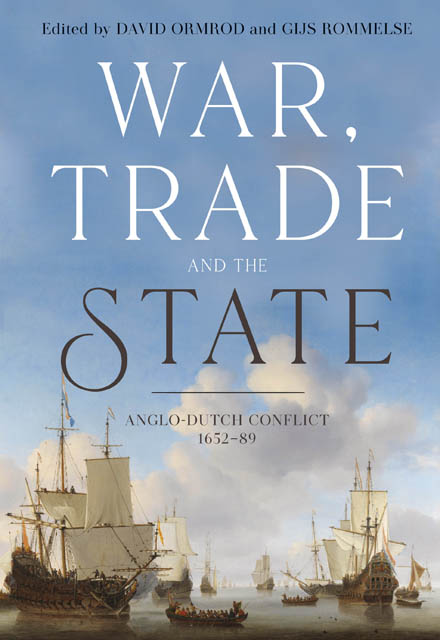6 - The Dutch and English fiscal-naval states: a comparative overview
Published online by Cambridge University Press: 18 January 2023
Summary
Warfare at sea defined the relationship between the Dutch and English states during the second half of the seventeenth century. The ships of these two nations encountered one another again and again, in vast battles and in small skirmishes, in European waters and around the world. Many thousands fought in these conflicts, which had an impact upon the entire populations of both countries, as well as having significant consequences for global politics. Mobilising the naval forces that fought these wars was an enormous undertaking, and naval administration and operations occupied much government time and resources in England and the Dutch United Provinces throughout this period. Both countries can therefore be considered as fiscal-naval states, a concept which has emerged from debate around the existence of an early modern military revolution by land and by sea, and which draws on John Brewer’s description of England as a fiscal-military state in the eighteenth century. Fiscal-naval states were, as N.A.M. Rodger puts it, ‘distinguished by [their] commitment to a capital-intensive, high-technology mode of warfare demanding long-term state investment’, and both the Dutch and English states easily fit this definition.
As we will explore in this chapter, this commitment and this investment had profound implications for the shape of these two states as they developed across the seventeenth century, with consequences for domestic as well as foreign policies. The Dutch and English navies influenced government revenue, expenditure, and taxation, which affected a wide swathe of society; they directly employed large numbers of people; and they drew on extensive networks of suppliers and contractors. These navies held a key place not only in maritime warfare but also in national identity formation, even while such identities coexisted (sometimes uneasily) with local loyalties, which also featured heavily in naval ideology, especially in the Dutch case. While our purpose here is primarily to examine how these two fiscal-naval states developed over the seventeenth century, and to establish similarities and divergences, we also wish to offer some comments on the broader significance of these developments. We will pursue this comparison by exploring, in turn, the organisation of the two navies; the structures of revenue and expenditure which financed them; and the scope and scale of private involvement in and alongside state activities.
- Type
- Chapter
- Information
- War, Trade and the StateAnglo-Dutch Conflict, 1652-89, pp. 117 - 136Publisher: Boydell & BrewerPrint publication year: 2020



